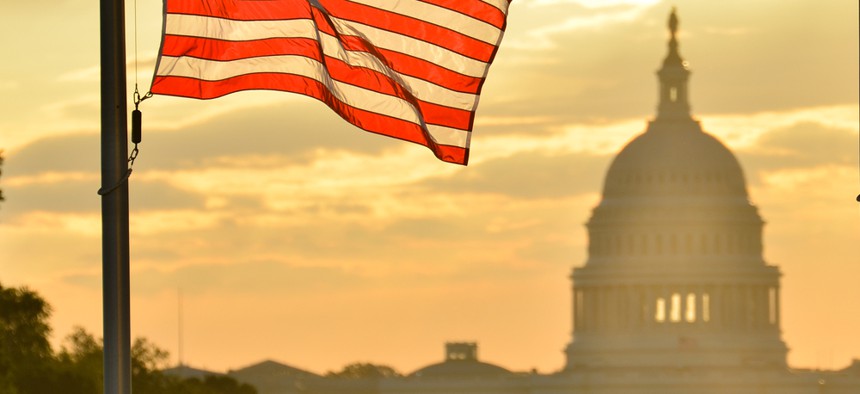
Image via Orhan Cam/Shutterstock.com
Analysis: Americans Need to Re-embrace Sacrifice
One thing is clear: Whatever steps are necessary to restore the economy will require money and pain.
The most impassioned debate in the nation’s capital last summer wasn’t over the role of government or the fragile economy or even the ill-tempered presidential campaign. At issue: Should Stephen Strasburg continue to pitch? The Washington Nationals’ phenom had undergone surgery in 2011, and general manager Mike Rizzo vowed to protect the 24-year-old ace’s elbow by limiting his season to 160 innings. As the eight-year-old franchise contended for its first pennant, radio talk shows erupted when Strasburg was benched. The Nats made the playoffs—yippee!—but were eliminated all too soon.

Subscribe
:
Newsletter
Facebook
LinkedIn
Soon we’ll see whether a still-President Obama and a still-Republican-run House will sacrifice cherished goals and risk their political comfort in hopes of shoring up the U.S. economy for decades to come. One thing is clear: Whatever steps are necessary to restore the economy to greatness will require money and pain. Navigating the fiscal cliff, restraining the federal debt, controlling the spiraling costs of medical care and entitlement programs, restoring a crumbling infrastructure—none of this will be easy or cheap.
Americans used to be good at hard tasks. The Puritanism that animated the culture of early America prepared the Founders to risk their lives and sacred honor on a new nation’s success. The self-abnegation and bravery required to settle the Western frontier shaped (at considerable cost to Native Americans and buffalo) a nation’s self-image. The ethos of Horatio Alger and the self-made man still propels Americans’ ambitions. Hardy members of the Greatest Generation survived the Great Depression and fought the last good war—but not, it is useful to remember, because they wanted to. They had no damn choice.
It’s human nature, after all, to prefer prosperity and ease over sacrifice and back-breaking labor. But, as any parent knows, restraining human nature is a precondition for civilization.
So, what happened to Americans’ willingness to sacrifice? The reasons are financial, cultural—and endemic. Assumed prosperity and self-indulgence turned the Greatest Generation’s idealistic children into me-generation materialists. Driven by corporate raiders and stockholders flexing their muscles, Wall Street began to stress quarterly earnings over long-term strength. The Reagan administration offered supply-side economics as an elixir that could turn lower taxes into higher federal revenue. In state after state, voters cut their property taxes and damaged public schools. Decades of inflation and easy credit taught consumers that borrowing for your heart’s desires will cost you less to repay. It’s tougher to sacrifice when your income is stagnant or worse; average Americans have less to give.
The problem isn’t Washington. It’s us. No longer are we willing to pay full freight for the things we know we need. Voters who demand something for nothing will expel any politician who preaches otherwise, and politicians who fear for their jobs—that is, all of them—will comply. Americans used to pay for their wars, but President George W. Bush, nervous about public support for invading Iraq, waved a credit card instead. We elect (and reelect) the cowardly leaders we deserve.
It’s important not to overstate things. Parents still sacrifice for their children. Americans donated nearly $300 billion to charity in 2011, more than 10 times as much (adjusted for inflation) as 40 years ago. Political philosopher Michael Sandel has described the all-volunteer military—the 0.45 percent of Americans on active duty—as the nation’s “last repository of civic idealism and sacrifice for the sake of the common good.”
There are reasons for optimism about the fiscal cliff and the nation’s To Do list—in Obama’s desire to be a historic president, in Republicans’ need to avoid a demographics-driven minority status, in a legislative dynamic that assures that taxpayers will suffer if nothing is done. If Americans can summon a spirit of sacrifice and start acting again like adults, our leaders will lead.






